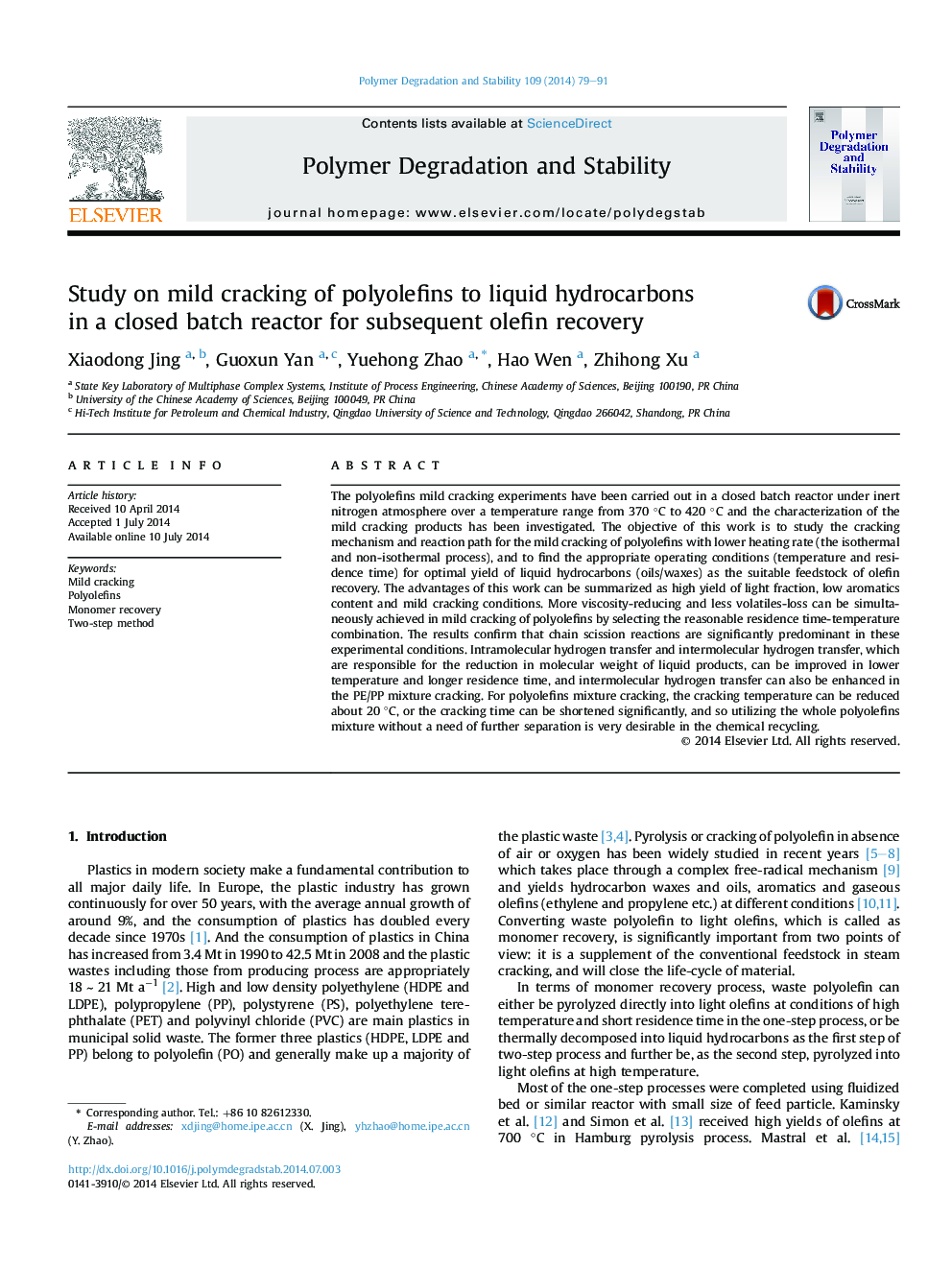| Article ID | Journal | Published Year | Pages | File Type |
|---|---|---|---|---|
| 5201715 | Polymer Degradation and Stability | 2014 | 13 Pages |
Abstract
The polyolefins mild cracking experiments have been carried out in a closed batch reactor under inert nitrogen atmosphere over a temperature range from 370 °C to 420 °C and the characterization of the mild cracking products has been investigated. The objective of this work is to study the cracking mechanism and reaction path for the mild cracking of polyolefins with lower heating rate (the isothermal and non-isothermal process), and to find the appropriate operating conditions (temperature and residence time) for optimal yield of liquid hydrocarbons (oils/waxes) as the suitable feedstock of olefin recovery. The advantages of this work can be summarized as high yield of light fraction, low aromatics content and mild cracking conditions. More viscosity-reducing and less volatiles-loss can be simultaneously achieved in mild cracking of polyolefins by selecting the reasonable residence time-temperature combination. The results confirm that chain scission reactions are significantly predominant in these experimental conditions. Intramolecular hydrogen transfer and intermolecular hydrogen transfer, which are responsible for the reduction in molecular weight of liquid products, can be improved in lower temperature and longer residence time, and intermolecular hydrogen transfer can also be enhanced in the PE/PP mixture cracking. For polyolefins mixture cracking, the cracking temperature can be reduced about 20 °C, or the cracking time can be shortened significantly, and so utilizing the whole polyolefins mixture without a need of further separation is very desirable in the chemical recycling.
Related Topics
Physical Sciences and Engineering
Chemistry
Organic Chemistry
Authors
Xiaodong Jing, Guoxun Yan, Yuehong Zhao, Hao Wen, Zhihong Xu,
